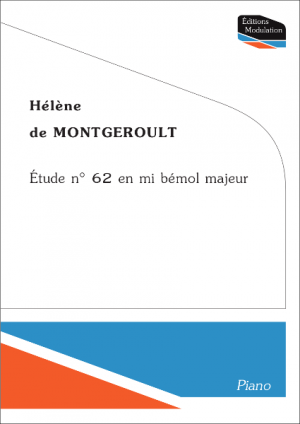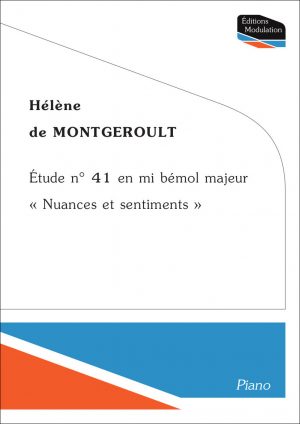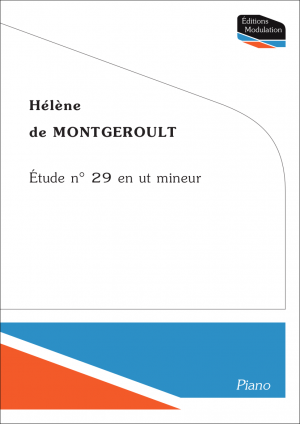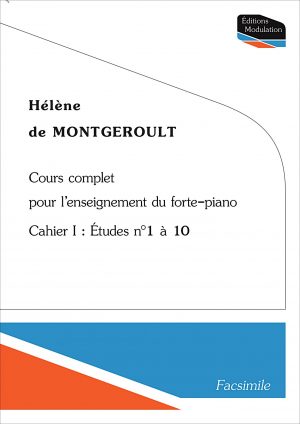Description
« The moves of the soul »
Etude for both hands: to harmonize the singing with the accompaniment.
This great idea that TALENT RATES BY THINKING, would seem to belong exclusively to the combinations of the spirit; it finds however the most accurate use, not only to musical compositions, which is quite simple, since they are a creation of the mind; but also to the playing of an instrument. The marriage that must be formed between the purely mechanical execution, and the expression that is the organ of the feelings of the one who plays; this art of making the emotions that the soul feels express through the fingers, requires multiplied thoughts. Also, either the student who studies the piano, with the purpose to acquire a real gift, attaches little or much interest to the observations we have attached to each Etude of this work; or he understands them well, or finds them unclear; they will always achieve the very useful goal of making him think: the desire to better understand, and to realize what he already feels will, by the very thought, hasten his progression. So whenever he skips an Etude, he will do well to review our previous observations on the same kind of issues. We have so far maintained it of the melody in the studies Nos. 10, 28, 30, 32 and 36; the following one requires the use of more means not that it is of a difficult performance; but it must be expressed with a tender and melancholic feeling, whose mechanical play must not hinder the growth, and that the student must render without overstatement. In a true skill, everything, even the expression, must be tempered. The need to harmonize singing well with accompaniment will be particularly felt in this piece. The left hand must be completely unrelated to the right. There are times when the expression requires the upper part to slightly exceed the value of some notes; the accompaniment must not be altered. The anticipation or delay in the measure is often used for expression; but it only produces an unpleasant overall defect if one of the two hands does not constantly maintain the balance. This anticipation is what in Italy is called TEMPO ROBATO . (H. de Montgeroult)





